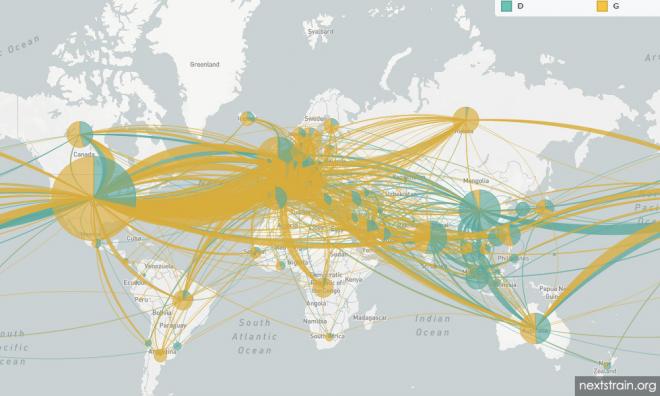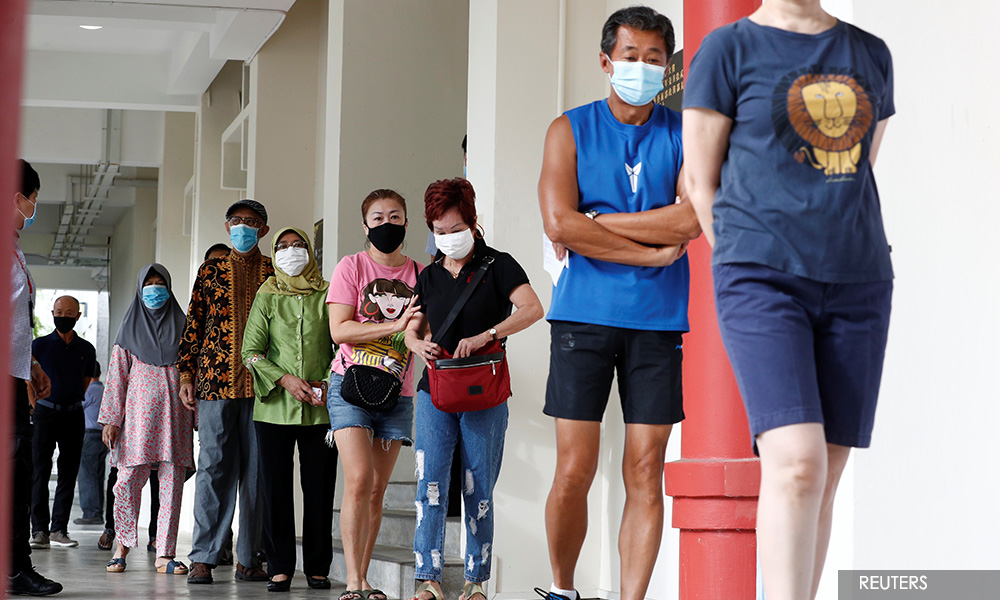
COVID-19 | Experts in Singapore have reportedly questioned Health Ministry director-general Dr Noor Hisham Abdullah’s claim that Malaysia has found a strain of the virus that causes Covid-19 that is 10 times more infectious.
They also questioned the claim that Covid-19 vaccine candidates currently in the development pipeline would be ineffective against the relatively new variant of the virus.
“This mutation would certainly not impact vaccine efficacy since vaccines would generate antibodies that bind to many different parts of the virus spike protein and not just be limited to the site of mutation,” Singapore’s Straits Times quoted Duke-National University of Singapore (NUS) Medical School emerging infectious diseases programme deputy director Ooi Eng Eong as saying.
The programme’s director Wang Linfa reportedly told the newspaper that there is “no real scientific data to make the claim that D614G is more transmissible, let alone the tenfold claim”.
NUS Saw Swee Hock School of Public Health infectious diseases specialist Hsu Liyang reportedly said that the viral strain carrying the D614G mutation has been circulating in Singapore since February, and more than 100 samples with the mutation have been found up to July.
Hsu surmised that since only a small fraction of virus samples were sequenced, there were likely to be thousands of infections in Singapore caused by the D614G mutation.

The Covid-19 virus carrying the D614G mutation has drawn attention from scientists as it becomes more prevalent in many parts of the world, but there is little consensus on how this had transpired.
Several papers published in the past few months have lent credence to the claim that the mutation makes Covid-19 more infectious, though a definitive answer remains elusive and it is unclear just how much more infectious it is if that is the case.
Yesterday, Noor Hisham announced that the virus samples in some patients involved in the Sivagangga cluster and Bukit Tiram cluster had carried the mutation, and follow-up studies were underway.
“It has been found to be ten times more likely to infect other individuals, and could spread easily if spread by 'superspreaders',” he said.
He urged Malaysians to be more vigilant in preventing the spread of the disease.
Meanwhile, Straits Times quoted Wang as saying that the D614G variant has shown itself to be more genetically fit, but this does not mean it spreads more easily or causes more severe illness.
Singapore Academy of Medicine's Chapter of Infectious Disease Physicians chairperson Dr Asok Kurup reportedly said there has been no clinical impact from the mutation.
However, he said if it proves more infectious, it would make preventive measures such as masking and physical distancing even more important. - Mkini


No comments:
Post a Comment
Note: Only a member of this blog may post a comment.